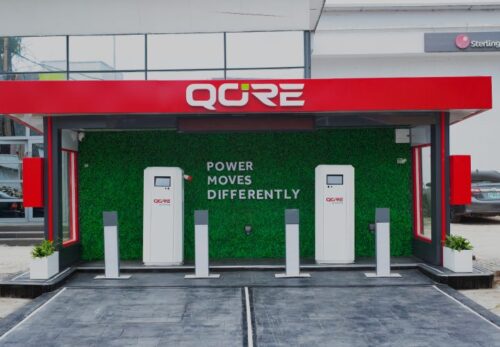
Qore, a company dedicated to promoting eco-friendly transportation in Nigeria, is leading efforts to convert gas-powered vehicles into electric ones as part of its mission to reduce the country’s greenhouse gas emissions. Nigeria’s transportation sector is the largest contributor to carbon emissions, but Qore, with backing from Sterling Bank, is focused on transforming light electric vehicles—such as motorcycles, tricycles, and minibuses—into electric vehicles (EVs).
These vehicles can travel up to 60 km on a single charge, making them suitable for daily commutes and short-distance travel.The conversion process involves replacing the existing internal combustion engines with electric motors and batteries, a move that aims to reduce air pollution and create more sustainable transportation options. To complement this effort, Qore recently launched a self-serve public charging station in Lagos. This station allows users to swap their depleted batteries for pre-charged ones, making it easier to keep electric vehicles running. Users pay for battery recharging and use, simplifying the process of maintaining an EV.
Qore is also expanding its operations, with plans to deploy 100 electric tricycles in Kano next month as part of ongoing testing. The company is closely monitoring key factors such as range, temperature, and other performance data to ensure its vehicles meet the demands of Nigerian transport systems.While the environmental benefits of electric vehicles are clear, the cost of conversion is a significant challenge.
The process, though cheaper to maintain than traditional gas-powered vehicles, requires a considerable upfront investment. Qore is addressing this by targeting groups of clients rather than individuals, allowing for more efficient cost management through larger-scale conversions.To power its charging stations, Qore relies on a mix of grid electricity and renewable energy. Given Nigeria’s unreliable electricity supply, the company has negotiated with distribution companies to secure a stable source of electricity while using renewable energy as a backup. Qore’s newly launched EV charging station in Lagos can simultaneously refuel two electric vehicles.
As the electric vehicle market in Africa is expected to grow rapidly in the coming years, Qore understands the need for a long-term approach. The company generates revenue by converting internal combustion engines to electric power and charging users for battery swaps. Additionally, Qore has ventured into financing two-wheelers and three-wheelers for public transport, with plans to expand to cars and public buses. However, the high energy demands of buses present a significant challenge as the company looks to scale its operations and serve a broader market.



